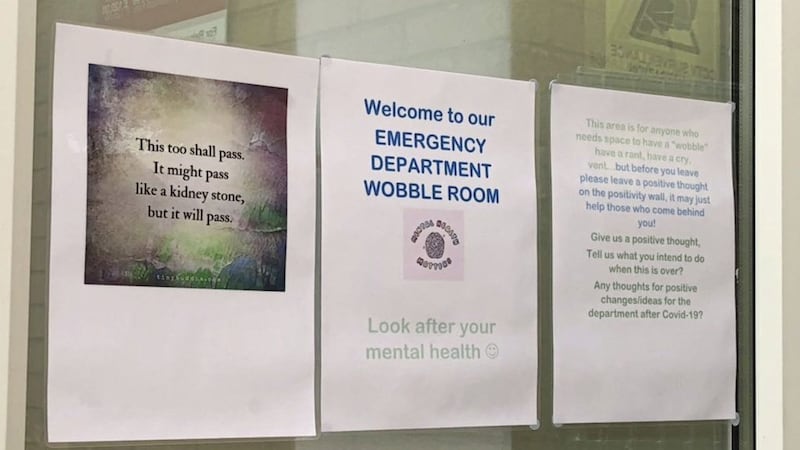IF you cast your mind back all those years ago when we first went into coronavirus lockdown - OK, it was just over a month ago, but doesn't it feel far, far longer? - you may remember that all the talk was about 'flattening the curve'.
There has been evidence this week that the Northern Ireland curve has indeed flattened, with Covid-19 discharges from hospitals reportedly exceeding new admissions.
Health minister Robin Swann also said that his department's latest modelling estimated that there would now be around 1,500 deaths from coronavirus in the first 20 weeks of the epidemic - a significant downward revision of earlier modelling, which suggested 3,000 fatalities was a 'reasonable worst case scenario'.
Whatever the eventual figure, clearly each death is an immeasurable loss, its effects rippling from each person's immediate family and out to their friends and community.
That families can't sit with their dying relatives, as well as the restrictions around funerals and church services, only adds to the tragedy.
Nonetheless, in the context of a global pandemic and the fight against an invisible enemy, the measures associated with the lockdown - self-isolation, social distancing, the banning of public gatherings and so on - are working.
That's why the government is, for now, highly reluctant to talk about getting back to 'normal'.
It needs to, though, especially as the unintended consequences of the lockdown start to become more apparent. These go far beyond the economic costs.
Hospital emergency departments, for example, have never been quieter.
This might give us an idea of the extent to which the service was abused Before Coronavirus, but it is also alarming health and social care professionals who are worried that opportunities for spotting cases of child abuse, domestic violence and addictions are being lost.
Vulnerable children are at greater risk because with schools closed, teachers and classroom assistants cannot identify or intervene in harmful situations.
Then there's the question of what children are actually learning at home, with the education department neither assessing the effectiveness of home schooling nor pupils' engagement with it.
What's brewing in our households is a wide range of psychological symptoms, including low mood, insomnia, stress, anxiety, anger, irritability, emotional exhaustion, depression and even post-traumatic stress
How we emerge from our homes and back into our offices, factories, classrooms, sports clubs and social spaces clearly needs to be managed carefully. It also needs to be communicated clearly.
There are further complicating factors. Any relaxation of our current restrictions will take place while the spectre of a second Covoid-19 surge looms; experts believe this is likely to happen in the autumn and that it will require a further period of lockdown.
Our initial approach to coronavirus has, for obvious reasons, focused on physical measures, whether that be to slow the virus's spread or to treat the ill.
But its mental health effects need more emphasis.
Research on the psychological impact of lockdown offers "a glimpse of what is brewing in hundreds of millions households around the world", says Dr Elke Van Hoof, professor of health psychology and primary care psychology at Vrije Universiteit Brussel in Belgium.
What's brewing is a wide range of symptoms, including low mood, insomnia, stress, anxiety, anger, irritability, emotional exhaustion, depression and even post-traumatic stress.
The first research papers about the lockdown from China have found that parents quarantined with children face an even steeper mental health challenge.
A psychological response to what we are all living through at present is normal.
But, says Dr Van Hoof, if left unaddressed, we can expect a 'secondary epidemic' of burnouts and stress-related absenteeism in the latter half of the year.
Savvy HR departments and management will already be thinking how to prepare their staff and workplaces for life after lockdown.
Governments have an obvious role to play here, in policy, education and treatment. Self-help interventions that allow us to help ourselves need to be in place.
Beating the invisible virus may prove to be the easy part; without the right help, defeating Covid-19's unseen psychological effects could be even tougher.








